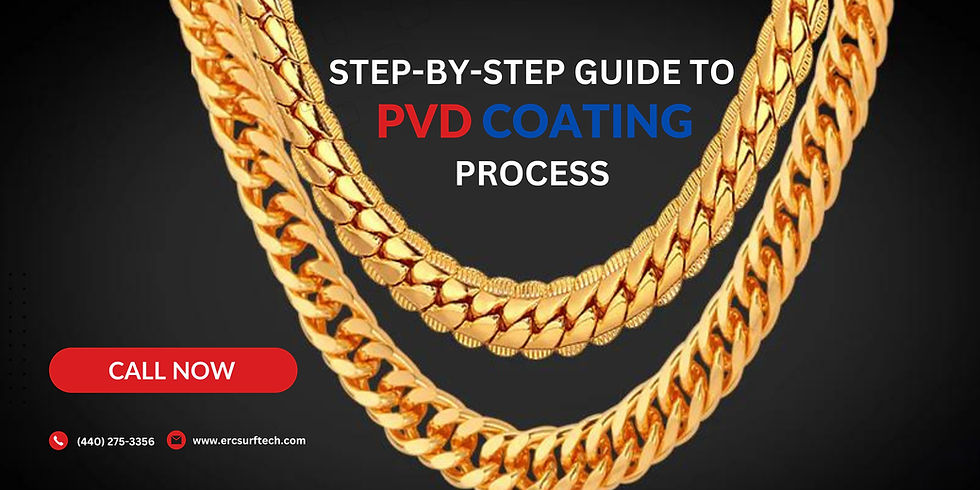Exploring The Difference Between Industrial And Decorative Plating
- surftech22
- Nov 21, 2022
- 3 min read
Updated: Nov 22, 2022

Manufacturers and metal finishing companies use electroplating for various purposes such as improving the shape of the part, increasing longevity, improving corrosion resistance or improving adhesion. Perhaps the most common use for jewelry is to add gold or platinum to the jewelry to give a shiny finish that makes the product more attractive to consumers. However, this method is not classified as "industrial" plating because it does not provide additional protection to the product. In fact, dealers and consumers can purchase a do-it-yourself plating kit to apply a surface coating to a ring, watch, or pendant for decorative purposes. At SurfTech, we strive to provide an PVD plating and PVD coating service, thin film coating, and ceramic coating facility service that only promotes and/or protects the foundation. Although the end product may be attractive, our end goal is not about looking at everything, but more about how the part works and how to work with other things.
What is Industrial Plating?
The industrial electroplating process is more complex than what is usually used for coating products to give only a good look. The process involves immersing parts (seeds) in an electrolyte solution containing dissolved ions of the coated metal, along with other chemical additives and you can read more about PVD plating from SurfTech. Electroplating introduces an electric current directly into a solution that deposits metal ions on the substrate, a process known as electroplating. Electroplating creates a stronger bond between the substrate and the metal coating than is possible with less sophisticated plating methods.
What is Decorative Plating?
Electroplating is an electronic process where a thin layer of metal, nickel, chrome or copper is deposited on a wire mesh in a water-repellent manner. A vintage decorative finish can produce a woven wire mesh look in a way that other coatings can't. Thin metal does not hide the details of the wire mesh but rather highlights it. This decorative plating or decorative PVD coating enhances the appearance of the fruit and gives a beautiful finish. Then provides a protective coating and prevents corrosion of the metal.
Also read about Factors To Consider When Choosing a Ceramic Coating Service
Combining Decorative And Functional Benefits In One Process
One of the main advantages of the electroplating process is that it can give the manufacturer the best of both worlds. It can provide protection that will increase the life and improve the performance of the product, while it meets the aesthetics of the manufacturer and the end user. For example, manufacturers have traditionally used chrome plating to improve the appearance of various car parts - although chrome has been replaced with nickel and other metals due to the toxic nature of hexavalent chromium. The coating will improve the corrosion and chemical resistance of the part. Electroless plating, which affects the coating by electroless reaction instead of electricity, can also meet the manufacturer's performance and appearance requirements. The military and defense industry often use electroless nickel coatings for lighting, as they provide the dark finish required for certain types of equipment. Of course, manufacturers also use electroplating for its functional benefits without worrying about aesthetics. For example, copper plating works well as a coating that will help the combination when applying the second coating or finish, especially when working with a base material such as plastic. Since this cover underneath will remain invisible to the end user, its appearance will mean nothing to the customer.
At SurfTech, we offer a variety of electroplating, PVD coating service, thin film coating, and ceramic coating facility and other high-end metal finishing services that can meet your work requirements and enhance product appearance where necessary. Contact us for more information and to receive an unemployment quote today. Feel free to call us on 440-275-3356 and email us on ncotton@ercsurftech.com.





Comments